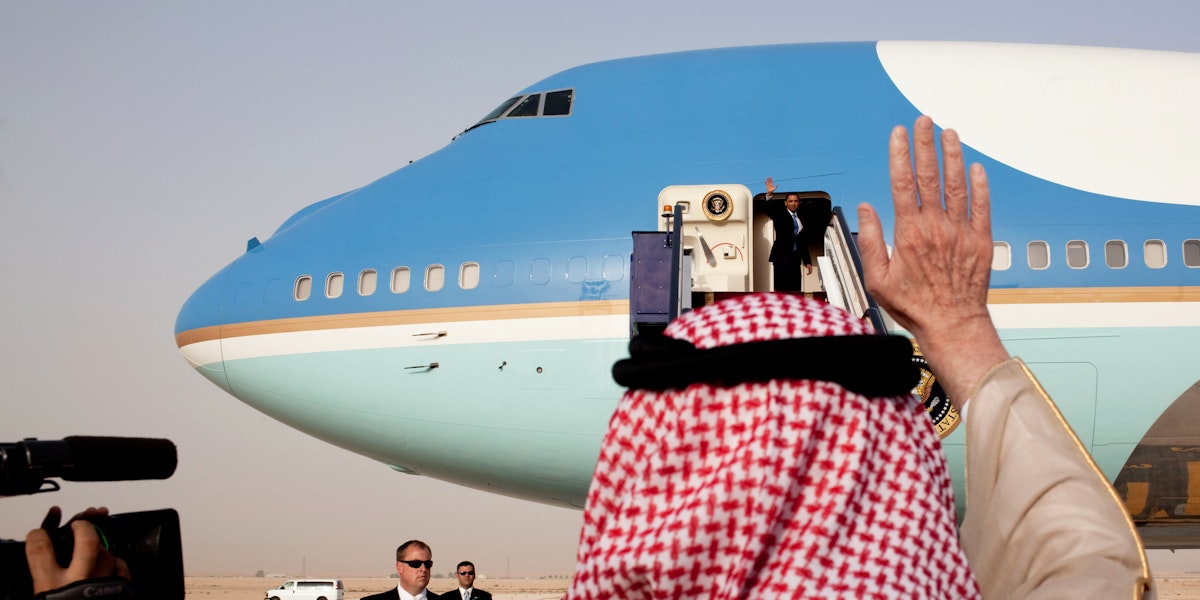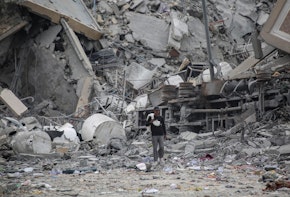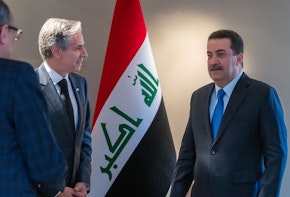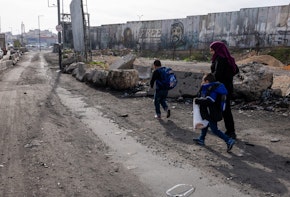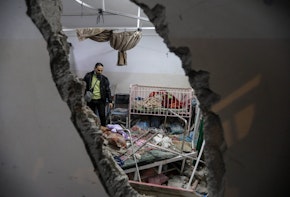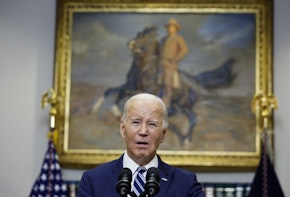The Middle East’s roiling risk level will rise another notch during the window of instability created by the American presidential transition. A crowd of regional governments, non-state actors, and foreign intervening powers are jockeying for position in a region undergoing a historical period of crisis. Many of them will be tempted to make bold or maximalist moves during the lame-duck period, hoping to position themselves better vis-à-vis Obama’s successor, Donald J. Trump, who will reassess U.S. policy in the region and could subsequently shift or reorder priorities. History has yielded a steady stream of lame-duck maneuvers in the Middle East, from the resolution of the Iran hostage crisis in 1981 to the Israeli blitz in Gaza in December 2008.
This policy brief assesses the climate for unilateral gambits in the Middle East during the ten-week lame-duck period, with an eye toward managing risk and maximizing the pursuit of interests for the United States. Some Middle Eastern leaders already have expressed high hopes for a Trump presidency, hoping he will abandon even rhetorical pressure over human rights and embrace strongman rulers in Turkey, Egypt, Syria, and Saudi Arabia. Underlying these hopes, however, is anxiety; none of the Middle East’s leaders know what policies to expect from Trump, and because he doesn’t have a foreign policy records or a well-known coterie of advisers, his rise to the presidency injects even more than the usual amount of uncertainty into the lame-duck period. What are the new or increased risks during the transition period? How can the United States best avert them? Are there foreign policy surprises that President Obama himself might want to unveil in the Middle East during his lame-duck period?
Risks from the Usual Suspects
History suggests that Middle Eastern players, especially aggressive, high-risk, sometime-spoilers with zero-sum mindsets, often make some of their riskiest or most politically unpalatable bets during lame-duck periods, when they believe they have maximum political room to maneuver and run the lowest risk of decisive U.S. action. The most recent example was Israel’s prosecution of a polarizing and highly unpopular and damaging war in Gaza during the final months of George W. Bush’s presidency.1 In 2016, we can expect Russia to accelerate its offensives in Syria and perhaps elsewhere during the closing months of Obama’s presidency. Saudi Arabia is likely to ramp up its ill-conceived Yemen campaign, which might face more constraints from Obama’s successor.2 Israel is less likely to be one of the lame-duck actors this time, because it already is striking targets in Syria at will, and appears to be satisfied for now with the status quo along the Lebanese border.
Risks from three sources could elevate the general rumblings of instability in the Middle East to a new threshold: Russia, Middle Eastern governments, and non-state actors. Of these three, Russia’s lame-duck gambits—arguably already underway since September, when Russian president Vladimir Putin’s forces began an assault on Aleppo and bombed a United Nations relief convoy during a supposed ceasefire agreement—are the most dangerous.3
Russian analysts seem to converge4 on some common explanations5 for Putin’s strategy. He wants to leverage his considerable but limited power through calculated displays of force and unpredictability. He craves respect and influence for Russia, but considers his options for achieving it limited. He carries a list of grievances against the West, including some that even the West might at least understand—frustration that NATO and its second-tier alliances have extended so close to Russia, anger at the Western role in (and profit from) the pillaging of the post-Soviet economy, and fear that Russia could lose longtime allies such as Syria. Now, consider the lame-duck period in this combustible calculus.
Putin has consistently pursued a strategy of calculated instability—making quick, surprising moves, creating new facts on the ground and then consolidating his gains, while rival powers are negotiating or simply trying to process what has happened. Putin’s Russia has caught the West off guard time and time again: when it threatened natural gas exports to Europe,6 invaded Georgia in 20087 and the Ukraine in 2014,8 annexed Crimea,9 entered the Syrian war full-tilt in 2015,10 deployed long-range missiles to the Baltic Sea in October,11 and on countless other occasions, in ways big or small, it defied the expectation of comity or politesse that had briefly become the norm in the Great Power relations since the end of the Cold War.
Russia’s moves in Syria and the Middle East fit squarely with a global pattern of studied aggression, framed as restoration of what Russia views as its rightful geostrategic position. Along its NATO borders, Russia is flexing military muscles (like its lone aircraft carrier’s October cruise from the North Sea to the Mediterranean) to remind NATO that even a crusty declining Russia poses a major, nuclear threat. In the Middle East, Russia wants to consolidate its hold on Syria, which has been Moscow’s client and ally since Soviet times. It also wants to remind the United States that Russia is able to foment realignments, through its support for countries such as Iran and Syria, and over the long haul, by exporting nuclear know-how for power generation or weapons programs, and by serving as an alternate weapons supplier to Arab buyers.
As Joshua Yaffa writes in The New Yorker:
Putin likely believes—perhaps correctly—that, for reasons of both character and political reality, Obama is unlikely to risk a potentially dangerous escalation with Russia during his final months of office. For Obama, Putin was always a nuisance and a mystery, better avoided and marginalized than confronted head-on—a logic that might hold doubly true in the lame-duck period. That gives Putin three months to work through his geopolitical wish list, trying to set in place a number of faits accomplis that will be hard for the next U.S. President to overturn.12
While Russia is a formidable global player, it is but one of many forces affecting the Middle East, where most politics and conflict have local origins. Governments and non-state actors in the region have historically accepted American aid and military support without always helping the United States achieve its political aims. Major partners of Washington tend to engage in a form of triage—delivering on a big-ticket item like oil supplies or counterterrorism, while thwarting the U.S. agenda on the Iran nuclear deal or on human rights. Iraq and Saudi Arabia are among the leading habitual offenders of this type; Israel and Egypt historically have tested the boundaries of U.S. friendship although during this particular lame-duck period there’s little reason to expect new crises with those allies. These governments have found under successive U.S. administrations that they have considerable leeway to act against American interests; some of them pose a threat of lame-duck maneuvering.
Iraq Has Its Own Agenda in the Anti-ISIS War, and It Isn’t Always the Same as America’s
The United States has invested for two years in a steady build up in Iraq, after drawing down its forces there at the Iraqi government’s request. In cooperating with a bedeviling array of different entities, a military coalition is trying to destroy the Islamic State (IS, or ISIS) group’s entire operation in Iraq. The central problem is that while everyone involved dislikes the Islamic State, many coalition members deeply dislike each other. The Iraqi government, backed by many sectarian Shia factions, wants to hold together a multi-ethnic nation under Baghdad’s central control, but at the same time has demonstrated little interest in finding a way to make Sunnis feel secure13 and enfranchised. Meanwhile, Iraqi Kurds—the most effective local allies for the Americans in the fight for Mosul—care more for their own ethnic enclave’s security and survival than they do for Baghdad’s interests.14 The Shia military and the Kurdish Peshmerga both have destabilizing incentives to consolidate territory won during the anti-ISIS campaign and maximize their factional leverage in the long-term fight over decentralization and power sharing.
Before his term ends, President Obama wants Mosul cleared of ISIS and the Iraqi state on top after two years of teetering in the face of ISIS offensives. And when a president with an expiration date wants something, that’s when lame-duck prospectors see their opportunity. The United States wants maximal unity in order to defeat ISIS and reintegrate Sunni communities; their Iraqi partners, in contrast, have every incentive to protect their communal interests, even if that compromises the fight against ISIS. A worst-case scenario involves some factions taking control of areas that should fall under the national government’s control, or turning their weapons against their erstwhile partners in the anti-ISIS coalition. A more likely lame-duck scenario is that Kurdish or Shia communal leaders try to extract unpalatable concessions from the United States in exchange for continuing their role in the anti-ISIS push. Kurds want more autonomy and a bigger share of oil proceeds. The government in Baghdad wants less scrutiny of its use of sectarian militias and less pressure to treat all citizens as equals. All of America’s allies want to be free to continue pursuing unfettered corruption.
Parties to Syria’s War Will Consider Defying American Demands or Expectations
President Obama has revealed most of his preferences on Syria. Although many of the pivotal actors in the conflict have little concern one way or another, having concluded that the United States is not willing to get more deeply involved, they all sense that a new administration could make a major shift in America’s role in the war. President-elect Trump has declared a fondness for Russia’s leader, and has signaled that he’s less interested in the war in Syria than the war against the Islamic State. But analysts in Russia and Syria, while they say they hope for a smoother relationship with Trump than they had with Obama, don’t have any tangible expectations from the man whose campaign avoided detailed foreign policy proposals. For the Syrian government and its allies, that uncertainty creates an unpleasant incentive to maximize territorial gains by any means before Inauguration Day on January 20, 2017. The Syrian military, and its primary backers—Russia, Iran, and an array of sectarian non-state militias—will push to conquer Aleppo. Already Russia has bombed hospitals,15 United Nations aid convoys,16 and other protected civilian targets with impunity.17 The government allegedly has used chemical weapons. War crimes and atrocities have become the norm, with barrel bombing and starvation sieges a key regime tactic; that doesn’t mean such outrages couldn’t accelerate during the lame duck period.
Meanwhile, the Syrian armed opposition and its foreign backers—many of them U.S. allies angry that the United States hasn’t done enough in Syria—have been clamoring for surface-to-air missiles and additional weapons that could shift the war’s momentum back in their favor.18 Saudi Arabia and other sponsors have refrained at Washington’s request from distributing anti-aircraft rockets to rebels. Washington is afraid that such weapons would fall into the hands of terrorist groups who might then use them elsewhere. In the lame-duck period, frustrated opposition backers, worried that the opposition could be entirely wiped out, might defy American pressure and ship game-changing weapons to the rebels, in a manner that maximizes risk of escalation or contamination because it would be done without U.S. coordination.
Saudi Arabia Might Further Escalate Its Disastrous Yemen War—in Which America Is Already Deeply Implicated
The United States made a misguided tactical decision to support Saudi Arabia’s war in Yemen in the spring of 2015. That move was widely conceived as a concession to Saudi Arabia, which was upset about America’s nuclear deal with Iran. The policy has been a loser all around: Yemen is in tatters, its citizens bearing the brunt in death and displacement of a war that has empowered Al Qaeda while failing to effectively neutralize the Houthis, who are neither the Iranian proxy they’ve been made out to be, nor posed any major threat to U.S. interests. Already in the final months of the U.S. presidential campaign, Saudi Arabia ratcheted up its bombing campaign. The United States justifiably reaped much of the opprobrium for an airstrike against civilians at a funeral, prompting calls for the United States to stop providing weapons, targeting information, and providing other support to the Saudi campaign.19 Indeed, American complicity with Saudi war crimes in Yemen has weakened the impact of American criticism of similar war crimes committed by Russia in Syria. Saudi Arabia probably senses that a shift in U.S. policy is possible, and will have a spoiler’s incentive to bomb as much as it can in Yemen before Obama’s term is up, figuring that the outgoing lame-duck president will probably leave to his successor any major decision about readjusting American military posture in the Arabian peninsula.
Many of the Usual Suspects, Conversely, Likely to Stay on the Same Track During the Transition
Other potential lame-duck actors are less likely to strike this time around because their policy postures are on a stable course. Israel, for instance, has strained relations with the United States, but has gotten the aid and military packages it desired despite defying American wishes on settlements.20 Throughout the campaign Israeli officials and analysts expressed a belief that any electoral outcome would leave them better off than under Obama. Unlike in 2008, Israeli officials seem confident that they’ll get a more sympathetic ear in Trump’s White House, so they’ll have little interest in major lame-duck period shifts with Gaza or along the borders with Lebanon and Syria. Iran-Saudi regional tensions are already at an all-time high, and Iran has followed its nuclear deal with a mix of angry rhetoric and fervid economic deal-making. Iran’s actions aren’t particularly stabilizing for the region, but the approach began before the lame-duck period and appears to be a long-term strategic posture that will extend into the next president’s term. Other thorny actors such as Turkey, Hezbollah, and Egypt are also on a consistent path, and have little interest upsetting the apple cart. While U.S. relations with them are problematic, there is little reason to believe that the lame-duck period will bring major shifts in behavior.
Containing New Threats
It’s impossible for a responsible power to ensure entirely against rogue and spoiler moves, but given that some of the moves are predictable, Obama can take certain measures during the lame-duck period to reduce the risk and contain fallout. In all the cases of known risk, Obama can instruct American diplomats to relay stern warnings to allies and rivals that policy gambits during the transition will invite American displeasure. While entirely symbolic, such messaging will remind allies that the United States is paying close attention. At the same time, he can shore up existing practices to make sure that potential offenders know the risks and understand that, even in the absence of nimble new policy responses, America’s existing practices guarantee a certain amount of reaction and consistency.
Remind Spoilers of America’s Existing Regional Security Commitment
While there are plenty of details under negotiation, America’s investment in Middle Eastern regional security and stability is ironclad. It has developed deep relationships over decades and dedicates a huge amount of military resources to the region. Relations might be tense with Turkey, but Turkey is a NATO ally and is thus afforded the full protection of alliance members. The United States might disagree with specific Saudi or Bahraini policies, but it remains committed and able to protect them in the event of a conflict with Iran. Reiterating America’s commitment will have the effect of reassuring nervous allies such as Saudi Arabia and Turkey. It will remind Russia and Iran that, for all their bluster, they are only free to engage in military maneuvers in the areas that fall outside of America’s sphere of influence. With little fanfare, the United States can make sure its considerable regional defense posture is in full swing, with visible presence in the Persian Gulf, the Mediterranean, and at NATO bases in Turkey.
Remind Russia of America’s Strategic Depth and Global Reach
Russia’s approach has been to raise the cost of action, and show America and its allies how dangerous it can be to cross Russia (as when it cut ties with Turkey in response to Turkey shooting down a Russian plane).21 The best U.S. countermove is to move swiftly to block Russian aggression in places where Russia has not spread by emphasizing U.S. presence and commitment. Rather than play into Russian aggression by immediate confrontation in the places where Russia is acting out—eastern Ukraine, Syria—a stronger move is to show American breadth and depth.
First, in the vicinity of Russia’s worst outrages, the United States can double down without extending its operations. That means a visible presence all around Syria, and quick, sizable increases in the existing commitments to humanitarian aid, civilian protection, and armed support to vetted proxies. Such a burst won’t change the strategic balance in Syria, but it will remind cash-strapped and rigid Russia that the United States can well afford a sustained global cat-and-mouse engagement. Second, the United States can lay down markers ahead of time in places where Russia might in the near future want to cross American interests. Quietly, Obama can warn governments in Egypt and Saudi Arabia that they will suffer sudden inconveniences if they flirt with Putin about weapons contracts or political partnerships that run afoul of U.S. interests. Publicly, it can reassert its security commitment to the Arabian Gulf, to Iraq, and its long-running partnerships with Egypt and Israel, that continue to determine the region’s defense posture no matter how prickly the relationships. If Russia, and America’s regional clients, want to contemplate a major renegotiation of the defense architecture away from U.S. dominance, the greatest risk would fall in the laps of leaders in Saudi Arabia and Bahrain, whose monarchies would be suddenly vulnerable to threats from Iran and from regional jihadis if they were to lose America’s security guarantee. Third, America must wholeheartedly embrace its commitments to the security of potential Russian targets farther afield, such as the Baltic Republics.
Use Incentives to Enlist Even Touchy Allies in Shows of Unity
Some of America’s allies have, of course, been giving Washington headaches in recent years, but they’ve also played along with a wide array of American requests even during tense periods, especially on counter-terrorism efforts, the Syria conflict, and energy markets. And governments such as the United Arab Emirates and Iraq have been quite willing to try and work with the United States on critical issues. President Obama can grant small incentives, like accelerating already-promised assistance or shows of political support to leaders, in exchange for tangible actions that make it harder for potential lame-duck spoilers to act out.
Can Obama Pull Any Surprises of His Own?
What’s good for the goose is good for the gander. Just as the many actors in the Middle East theater will be calculating how best to serve their own self interest during the unusual politics of the U.S. transition period, so too can President Obama. The outgoing president is not entirely free from political considerations—any radical moves will have consequences for his party as it plans to rebuild and consolidate its leverage within the Congressional minority—and he will not want to make any major shifts in the policies on which he has settled after years of deliberation. On the other hand, a departing President Obama no longer has to worry about an election campaign or about his detractors inside government. His successor already has vowed to repeal as much of Obama’s executive legacy as he can. So Obama is playing for the history books. What opportunities does he have to act in the Middle East, in keeping with his existing goals but freed from many of the political constraints that limited his policy in the Arab region?
What opportunities does he have to act in the Middle East, in keeping with his existing goals but freed from many of the political constraints that limited his policy in the Arab region?
Eleventh-hour heroics tend to fail when geared toward something that’s hard at any time, such as President Bill Clinton’s doomed effort to push through a landmark agreement between Israelis and Palestinians during his lame-duck period.22 But there are some consequential changes that President Obama could implement through executive action that don’t depend on unlikely confluences of circumstance, or buy-in from prickly or recalcitrant actors in the region. Here are some the president should consider, which would have major impact on the politics of the Middle East, and helpfully shift negotiating power and political capital into America’s favor, creating additional leverage for Obama’s successor and—like all lame-duck maneuvers—creating new facts on the ground. The next president could take advantage of these new facts to open new policy avenues. In some cases, Obama’s lame-duck surprises could limit wrong-headed policies that President-elect Trump might pursue.
Close Guantanamo Bay
The ongoing detention of terror suspects at Guantanamo Bay has been a nagging miscarriage of justice, and a political albatross of particular significance in the Islamic world. As the United States argues for rule of law and demands intelligence and security cooperation for its counter-terrorism agenda, the ongoing detention without trial and torture of detainees at Guantanamo Bay marks a moral stain for the United States and handicap everywhere, but especially in the Middle East. President Obama campaigned on a promise to close the detention facility at Guantanamo Bay but was thwarted by the politics.23 Currently only sixty-one detainees remain.24 Donald Trump is unlikely to have the slightest interest in closing the facility (and even if he surprisingly did, he would face the same political pressures against closing the facility). Obama, however, has the executive authority to do it before he leaves office. It’s the right thing to do, and any wider fallout against his party will be offset by the moral authority regained. Ending the Guantanamo gulag will also win chits with frustrated allies in the region; in fact, the release or transfer of prisoners from Guantanamo can be one of the inducements for asking Middle East regional partners to intensify shows of support for U.S. policy during the transition period.
Admit Syrian Refugees
America’s embarrassingly low number of Syrian refugee admissions is another moral blot for the United States, and makes it harder for the United States to pressure countries that host millions of refugees (Lebanon, Turkey, and Germany all have admitted more than a million refugees).25 President Obama can copy Canadian Prime Minister Justin Trudeau, who campaigned on a promise to admit 25,000 Syrian refugees immediately. His administration was able to process that many refugee resettlements in just four months. Now Trudeau is trying to admit an additional 50,000 Syrian refugees or more.26 Technically, it can be done; America has the capacity. Politically, America is long overdue for a symbolic break with the toxic discourse about immigration and refugees, and the security paradigm that has turned a melting point nation into one with where fortress mentality xenophobia has become mainstreamed. With executive authority, Obama can put in motion an ambitious and symbolically important policy to resettle 100,000 Syrian refugees in short order. He should announce a target of his last day in office, so that no matter what anti-immigrant policies Trump tries to implement, he will have to overcome an emboldened pro-immigration policy. Obama can foist a fact on the ground on his successor, putting momentum in favor of openness and resettlement rather than isolationism. Given his campaign record, Trump is likely to stop any resettlement program once he takes office, but some good will have been accomplished. In addition to the moral imperative, sharing responsibility for refugees will help the United States as it makes requests to Jordan, Lebanon, Turkey, and European nations that have taken on most of the burden.
Intensify Existing U.S. Operations in Syria Against ISIS and in Support of Rebels
A major reconsideration of U.S. policy in Syria is long overdue, and should lead to an escalation of America’s already sizeable military intervention there.27 Under President-elect Trump, however, the opposite is more likely—a major scaling down of America’s limited but pivotal military, humanitarian, and diplomatic engagement in Syria. In any case, however, Obama can best preserve U.S. options in Syria, guard against spoilers, and with luck, shift the balance a little bit back into America’s favor, by simply recommitting to his own existing policy. The United States is running at least three major military operations in Syria: a CIA-administered program to arm and train rebels, a Defense Department program, and an international campaign against the Islamic State. The tempo has been intentionally lackluster all year as the United States has concentrated on diplomatic negotiations. Syria and Russia, it turns out, were not negotiating in good faith.
America’s justifiable ambivalence about some of its vetted proxy forces has empowered the most extreme and least accountable rebel factions.28 The good news is that Obama doesn’t have to do anything different to restore American momentum; he just has to do more of what he already chose as his policy course. Most importantly, that means restoring a steady flow of approved weapons and support to vetted groups. An influx of anti-tank rockets and ammunition, the kind of support the United States has provided for years, could reverse the siege of Aleppo and relieve the strain on besieged civilians. It also means greenlighting rebels in southern Syria, who have been carefully trained for years, to conduct operations against the Assad regime. None of these measures would decisively change the outcome of the war, but they would restore an equilibrium and raise the costs for Syria, Russia, and Iran. The next U.S. administration would have at least as many choices as Obama has today, rather than far fewer.
Halt U.S. Support for the Yemen War and Put Saudi Arms Sales on Ice
American support for the Yemen war was a mistake. The Houthis are far more inimical to U.S. interests today, as a result of the intervention, than they were before. Similarly, the war has drawn the Houthis closer to Iran. But American interests in Yemen are not served by this war; in fact, Saudi, the United States, and Yemen were all better off when the Saudis considered Yemen under their tutelage but managed affairs there through economic and political control, rather than through warfare. Analysts writing in War on the Rocks argued that real review of Saudi weapons sales would lead the United States to scale down assistance. Usually reviews are designed to buy time rather than presage a policy shift, but in this case the United States would do well to wean itself off of arms contracts that help one part of the U.S. defense sector but create far greater political and strategic problems.29
Make It harder for Allies to Take Washington for Granted
Obama certainly can use some of the same tricks available to rogues and spoilers. Based on his own existing policies and stated frustrations with annoying allies, he could put many of them on notice and leave a political gift to his successor. Allies who have openly griped about U.S. policy and treated U.S. support as entitlement could learn a lesson or two if Obama makes them sweat during the lame duck period. In private meetings, he can have his officials let regional governments know that the United States will study relocating the the Navy’s Fifth Fleet from Bahrain, consider freezing its defense contracts with Saudi because of the Yemen War, and suspend cooperation with Arab militaries who get not only security but considerable perks from Department of Defense contracts—of the institutional as well as personal financial type. The United States could make clear to Turkish President Recep Tayyip Erdogan that it could move its operations from Incirlik Air Base in Turkey to a new facility elsewhere, for example in Iraqi Kurdistan. All Obama has to do do is inform regional leaders that he’s asked his staff to think about such moves. The next president might find more receptive, and grateful, allies in the region if those allies remember that American aid is not a birthright.
Obama’s lame-duck moves can set a better stage for American interests under Trump.
These actions would improve America’s position in the Middle East and create a host of new options for the United States. President-elect Donald Trump will probably take U.S. policy in the Middle East in a different direction, although there’s little evidence from the campaign what that direction will be. Obama’s lame-duck moves can set a better stage for American interests under Trump. Some of the course shifts suggested here will give Trump a wider range of options and a better negotiating position, even in cases in which he will alter course. And in cases where he might improve U.S. relationships with Middle Eastern leaders who have chafed at Obama’s decisions, Trump will benefit from an active lame-duck period that keeps American rivals and prickly allies on their toes. If he chooses, once in office Trump can curry favor by rolling back some of Obama’s lame-duck moves. If inclined to reinvigorate the moral dimensions of U.S. policy in the region with some values-based governance agenda, he could build on some of the regained consistency afforded by these sunset adjustments. And if not, at least the time horizon of the boisterous cast of Middle East players will shift its time horizon for dealing with U.S. policy back to four years from ten weeks, restoring a modicum of stability at a time when it’s in short supply.
Notes
- Kim Sengupta and Donald Macintyre, “Victorious, but vilified: Israel has ‘destroyed its image and its soul,’ The Independent, January 17, 2009, http://www.independent.co.uk/news/world/middle-east/victorious-but-vilified-israel-has-destroyed-its-image-and-its-soul-1418920.html.
- Andrew Cockburn, “Acceptable Losses: Aiding and abetting the Saudi slaughter in Yemen,” Harper’s, September 2016, http://harpers.org/archive/2016/09/acceptable-losses/.
- Thanassis Cambanis, “Aleppo: The Capital of Western Indifference,” The Atlantic, October 3, 2016, http://www.theatlantic.com/international/archive/2016/10/aleppo-syria-kerry-obama-assad-russia/502625/.
- Dmitri Trenin, “The Prospect of a Superpower War in Syria is Hardly Far-Fetched,” Financial Times, October 5, 2016, http://carnegie.ru/2016/10/05/prospect-of-superpower-war-in-syria-is-hardly-far-fetched-pub-64798.
- Nikolay Kozhanov, “Russia’s ‘Withdrawal’ from Syria is Nothing of the Kind,” Chatham House, March 21, 2016, https://www.chathamhouse.org/expert/comment/russia-s-withdrawal-syria-nothing-kind.
- Tomas Hirst, “Russia threatens to cut off gas supplies to Europe by Friday,” Business Insider, February 25, 2015, http://www.businessinsider.com/russia-gazprom-risks-another-gas-standoff-with-ukraine-2015-2.
- Michael Schwirtz, Anne Barnard, and C.J. Chivers, “Russia and Georgia Clash Over Separatist Region,” August 8, 2008, New York Times, http://www.nytimes.com/2008/08/09/world/europe/09georgia.html.
- “Russian Roulette: The Invasion of Ukraine – Part 1,” Vice News, March 3, 2014, http://www.vice.com/video/russian-roulette-the-invasion-of-ukraine-part-1.
- Jeffrey Mankoff, “Russia’s Latest Land Grab: How Putin Won Crimea and Lost Ukraine,” Foreign Affairs, May/June 2014, https://www.foreignaffairs.com/articles/russian-federation/2014-04-17/russias-latest-land-grab.
- Anne Barnard and Neil MacFarquhar, “Vladimir Putin Plunges Into a Caldron in Syria: Saving Assad,” New York Times, October 1, 2015, http://www.nytimes.com/2015/10/02/world/middleeast/vladimir-putin-plunges-into-a-cauldron-saving-assad.html?action=click&contentCollection=Europe&module=RelatedCoverage®ion=EndOfArticle&pgtype=article.
- Andrew Osborn and Simon Johnson, “Russia beefs up Baltic fleet amid NATO tensions: reports,” Reuters, October 26, 2016, http://www.reuters.com/article/us-russia-defence-baltic-sweden-idUSKCN12Q1HB.
- Joshua Yaffa, “Putin, Syria, and Why Moscow Has Gone War-Crazy,” The New Yorker, October 14, 2016, http://www.newyorker.com/news/news-desk/putin-syria-and-why-moscow-has-gone-war-crazy.
- Rasha Al Aqeedi, “The Once and Future Mosul,” The American Interest, September 26, 2016, http://www.the-american-interest.com/2016/09/26/the-once-and-future-mosul/.
- Janine DiGiovanni, “The Battle Against ISIS in Mosul Could Lead to an Indepdendent Iraqi Kurdistan,” Newsweek, October 18, 2016, http://www.newsweek.com/2016/10/28/battle-against-isis-mosul-kurdistan-independence-511041.html.
- Roy Gutman, “Assad and Putin’s Sick Strategy Bombing Hospitals,” The Daily Beast, July 27, 2016, http://www.thedailybeast.com/articles/2016/07/27/assad-and-putin-s-sick-strategy-bombing-hospitals.html.
- Eliot Higgings, “Confirmed: Russian Bomb Remains Recovered from Syrian Red Crescent Aid Convoy Attack,” Bellingcat, September 22, 2016, https://www.bellingcat.com/news/mena/2016/09/22/russian-bomb-remains-recovered-syrian-red-crescent-aid-convoy-attack/.
- Kenneth Roth, “If No Quick End to the War in Syria Can Be Found, At Least Protect the Civilians,” Los Angeles Times, November 13, 2015, http://www.latimes.com/opinion/op-ed/la-oe-1113-roth-syria-civilians-20151113-story.html.
- Greg Miller and Adam Entous, “Plans to Send Heavier Weapons to CIA-backed Rebels in Syria Stall Amid White House Skepticism,” Washington Post, October 23, 2016, https://www.washingtonpost.com/world/national-security/plans-to-send-heavier-weapons-to-cia-backed-rebels-in-syria-stall-amid-white-house-skepticism/2016/10/23/f166ddac-96ee-11e6-bb29-bf2701dbe0a3_story.html.
- Shuaib Almosawa and Ben Hubbard, “A Roar at a Funeral, and Yemen’s War is Altered,” New York Times, October 9, 2016, http://www.nytimes.com/2016/10/10/world/middleeast/yemen-saudi-arabia-military.html.
- Nicole Gaouette, “Largest-ever U.S. Military Aid Package to Go to Israel,” CNN, September 13, 2016, http://www.cnn.com/2016/09/13/politics/us-israel-military-aid-package-mou/.
- Neil MacFarquhar, “Kremlin Cutting Economic Ties With the Turks,” New York Times, November 26, 2015, http://www.nytimes.com/2015/11/27/world/europe/russia-turkey-plane-downing.html.
- Alan Philps, “Clinton’s Middle East peace initiative fails,” The Telegraph, January 9, 2001, http://www.telegraph.co.uk/news/worldnews/middleeast/israel/1314006/Clintons-Middle-East-peace-initiative-fails.html.
- Matt Apuzzo, Sheri Fink, and James Risen, “How U.S. Torture Left a Legacy of Damaged Minds,” New York Times, October 9, 2016, http://www.nytimes.com/2016/10/09/world/cia-torture-guantanamo-bay.html?hp&action=click&pgtype=Homepage&clickSource=story-heading&module=photo-spot-region®ion=top-news&WT.nav=top-news&_r=1.
- “Amnesty International USA Launches Campaign on President Obama’s Last 100 Days,” Amnesty International, October 13, 2016, http://www.amnestyusa.org/news/press-releases/amnesty-international-usa-launches-campaign-on-president-obama-s-last-100-days.
- “Statement by National Security Advisor Susan E. Rice on Syrian Refugee Admissions,” The White House Office of the Press Secretary, August 29, 2016, https://www.whitehouse.gov/the-press-office/2016/08/29/statement-national-security-advisor-susan-e-rice-syrian-refugee.
- Michelle Zilio, “Canada on track to welcome more than 300,000 immigrants in 2016,” The Globe and Mail, March 8, 2016, http://www.theglobeandmail.com/news/politics/ottawa-seeks-to-bring-more-than-300000-newcomers-this-year/article29069851/.
- Thanassis Cambanis, “The Case for a More Robust U.S. Intervention in Syria,” The Century Foundation, June 19, 2016, https://tcf.org/content/report/the-case-for-a-more-robust-intervention-in-syria/.
- Sam Heller, “Suppose America Gave a Proxy War in Syria and Nobody Came?,” The Century Foundation, July 7, 2016, https://tcf.org/content/report/suppose-america-gave-proxy-war-syria-nobody-came/.
- Richard Sokolsky and Jeremy Shapiro, “What a Real Review of U.S. Military Assistance to Saudi Arabia Would Say,” War on the Rocks, October 26, 2016, http://warontherocks.com/2016/10/what-a-real-review-of-u-s-military-assistance-to-saudi-arabia-would-say/.
